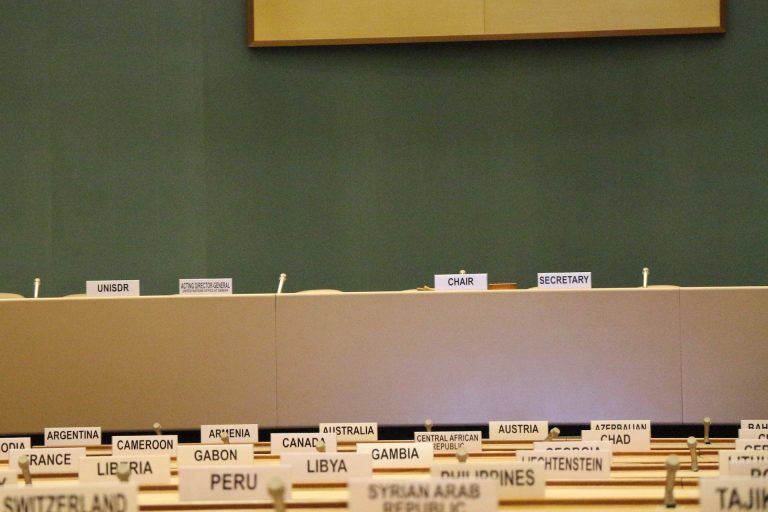
Tag security


On Its Pivotal Turning Point: The Prospect of Global Governance Forged by Chinese AI under the Rule of Law

Summons to Appear: NotPetya and the War Exclusion Clause

The United States Should Revive the Arctic Executive Steering Committee
The Nuclear Spectrum
Much of the public discourse on nuclear security is based on the implications of binary scenarios: a nuclear state versus a non-nuclear one. This approach does not account for the fact that beyond these two positions lies a spectrum of relative nuclear capabilities and characteristics. Factors that determine the position of a state in this nuclear spectrum include the size of its nuclear arsenal, its delivery capabilities, the vulnerabilities of its nuclear infrastructure, and its tactical deployment strategy. The state’s relative position, in turn, produces different security implications.
A Brief Introduction to Blockchain and Distributed Ledger Technologies for Informed Policymaking
Blockchain has swept contemporary discourse, from tech circles to governments worldwide. But many presentations of blockchain often either oversimplify what it actually is or aim at highly technical audiences. Basic historical and technical understanding are prerequisites for informed consideration of blockchain’s implications, as well as for bringing its potential to bear in new domains. Providing that understanding is the purpose of this paper.
Assessing American Statecraft in Asia
The United States will not tolerate any other power establishing “exclusive hegemonic control” over Asia or the Pacific, according to renowned Asia scholar Michael Green. In a magisterial work, Green argues persuasively that this anti-hegemonic impulse has been the central driver of American grand strategy toward the Asia-Pacific for over two centuries.
European Union Foreign Policy and the Failure of Potential
Retired Army Colonel Fitz Fitzpatrick discusses the European Union’s Common Foreign and Security Policy and Common Security and Defense Policy and the EU’s efforts to address crises in Libya, Ukraine and Syria. He argues that the EU has struggled to establish foreign and defense policies that are independent from the United States, and only an existential crisis will push the EU to fulfill its potential as an actor on the world stage.
Australia and India’s Nuclear Deal: A New Beginning in the India-Australia Relationship
Dr. Ashok Sharma assesses the recent Australia-India civilian nuclear agreement and argues that this landmark step shows the growing trust and confidence between Australia and India.
The Big Data Backlash: News Roundup, March 31 – April 7
All big ideas face a backlash: big data is no different. This week, we're exploring common criticisms of the use of big data.
Big Data and You: Weekly Round-Up
This week's news on big data: privacy, public health, and the "scary" state of cybersecurity.
Supplement to the Summer/Fall 2013 Issue: Terror on the Seas: Assessing the Threat of Modern Day Piracy
Maritime piracy is a major post-Cold War challenge to U.S. and international security. While the Greater Gulf of Aden represents the face of modern maritime piracy, the threat is larger than just the Puntland region of Somalia and the Bab el-Mandeb waterway. Brandon Prins, Ursula Daxevker, and Amanda Sanford look at the current threats posed by modern-day piracy.
